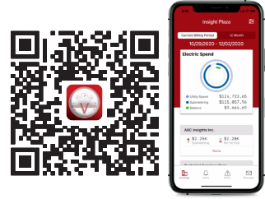Why Temperature Alerts Matter
Create a temperature alert. Save a life!
When alerts go off too often or for insufficient reason, they become nuisances. But what happens when you get alerts right?
Here’s the story of how alerts have saved more than 100 apartments for one high-rise residential property, including one lucky human and one almost-very-unlucky dog.
Clothes Don't Make the Man, and Rent Doesn't Make the Tenant
Breathtaking veined white onyx. Distinctive crystallo-quartzite. Hand-cast fixtures by the only foundry operating in NYC. Iconic views of Central Park and the Hudson River. A celebration of contemporary interior design and undeniable artistic energy.
If the above sounds similar to your property description, you might assume your tenants are paying enough to also pay attention to their windows and whether they're open in cold weather.
If only!
In our experience, tenants of every stripe open windows even in below-freezing conditions and then go to bed or worse – on vacation – forgetting all that cold air rushing in through those expansive skyline views and turning a mildly warm south-facing apartment into a literal ice box.
102 Reasons for Temperature Alerts
Why should you care about open windows as long as the heat's still on? Because if the air temperature at the thermostat goes below 55 degrees, the temperature near the exterior walls is likely a lot colder than that. And that means any water pipes that run along those exterior walls are likely to freeze. Maybe they won’t freeze entirely, but they don’t have to. All it takes is a little plug of ice in the faucet to snap the washer. If that happens, the faucet will start to drip, and pretty soon you’ve got a leak causing damage to walls, ceilings, floors, and furnishings.
Are we speaking from experience? Why yes, yes we are. That's why we believe in setting and perfecting temperature alerts.
It can taken some back-and-forth to determine the right value for an alert setting – one that lets you know there’s a real problem with enough time to react before damage is done. But since these events happen again and again (often from repeat offenders – see table below), it's worth taking the time to find your minimum temps and corresponding protocols. In just one building, our alerts have caught freezing conditions 102 times. That's a lot of damage prevention.

In the end, though, setting freeze alerts on tenant spaces is about more than protecting property. Hypothermia is a real danger, even indoors, should windows be left open long-term in frigid weather.
We once alerted management to an apartment with a temperature in the 40s. When maintenance went to check, they found a young adult unconscious on the floor and a small dog whimpering and shivering. We’re happy to say that everything turned out okay in that situation. But it might not have, if it hadn’t been for a well-designed alert and a diligent follow-up.
The ROI of Freeze Alerts
For facility managers and property owners, the calculus on alerts is compelling:
- Prevention of water damage from burst pipes ($500 per incident? $70,000? It all depends on the damage.)
- Fewer emergency maintenance calls
- Lower insurance premiums due to reduced risk
- Enhanced resident safety and overall satisfaction
What is the key to alert success? We suggest implementing alerts that are:
- Precisely calibrated to meaningful thresholds. Review them regularly and adjust until you find that sweet spot.
- Backed by clear response protocols. Does your team know exactly what they should do?
- Supported by lease agreements that enable enforcement (in an ideal world)
You Might Like
About utiliVisor
Your tenant submetering and energy plant optimization services are an essential part of your operation. You deserve personalized energy insights from a team that knows buildings from the inside out, applies IoT technology and is energized by providing you with accurate data and energy optimization insights. When you need experience, expertise, and service, you need utiliVisor on your side, delivering consistent energy and cost-saving strategies to you. What more can our 45+ years of experience and historical data do for you? Call utiliVisor at 212-260-4800 or visit utilivisor.com



